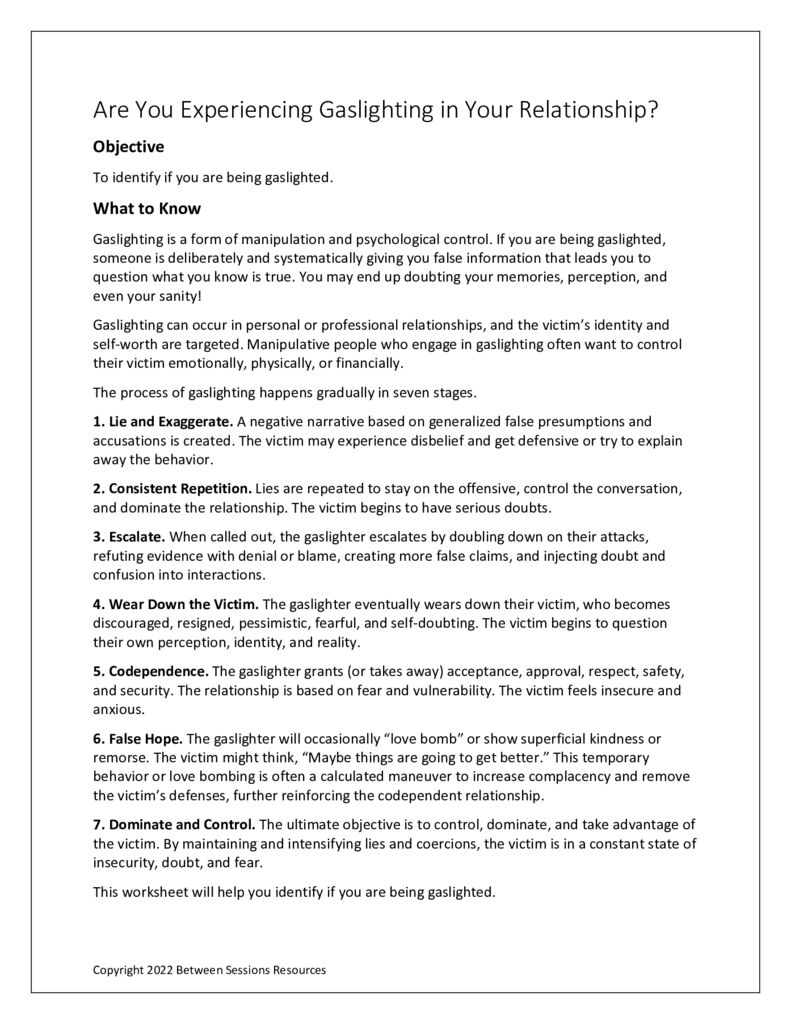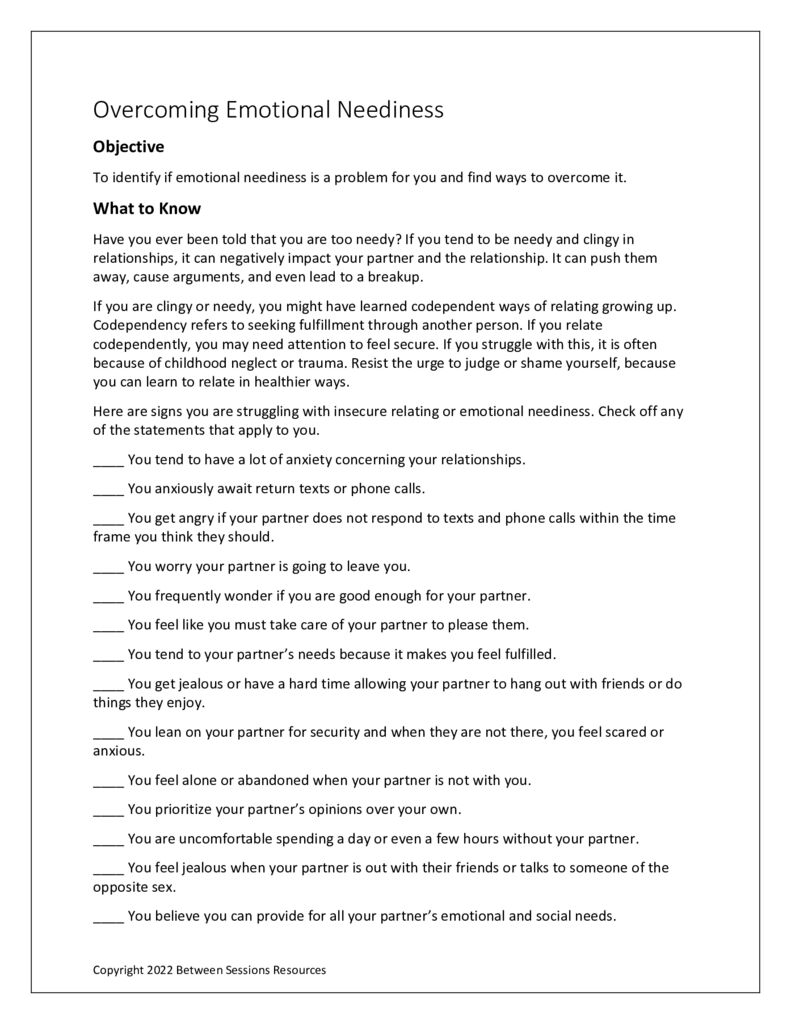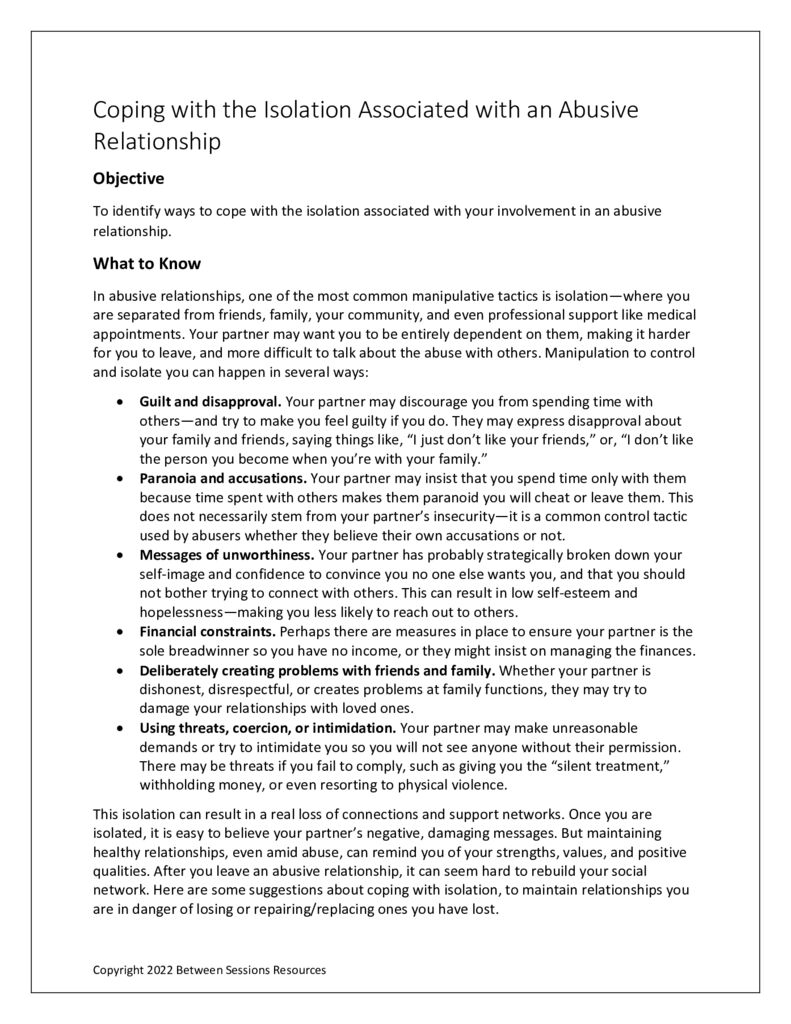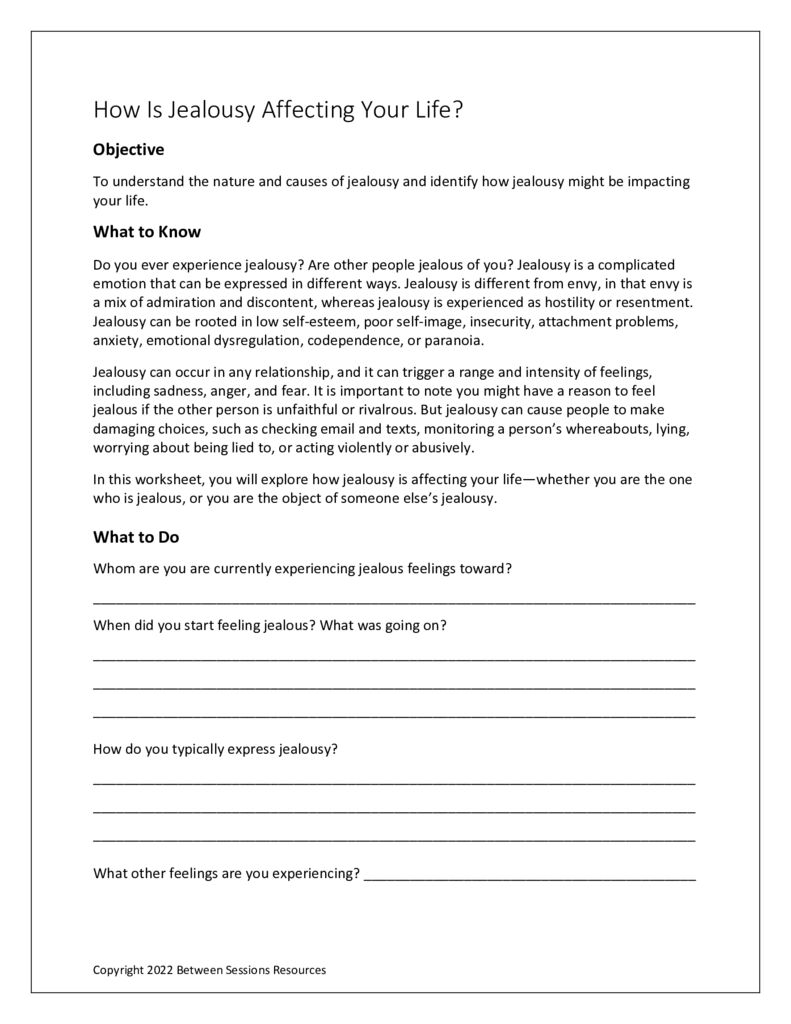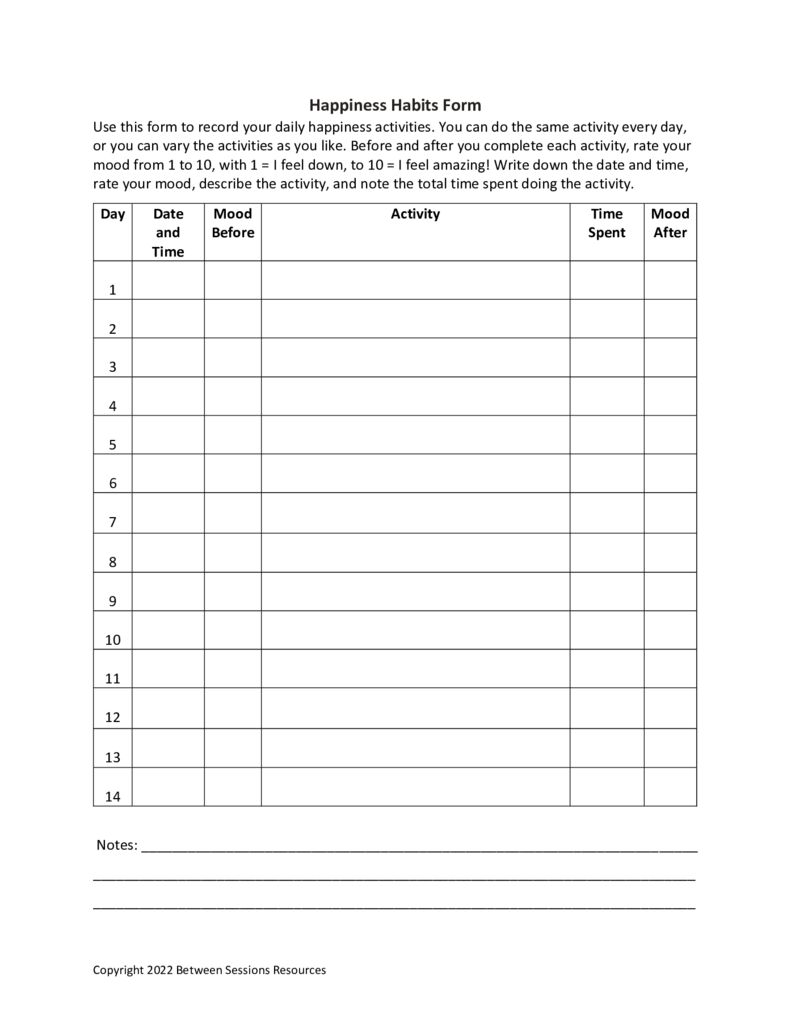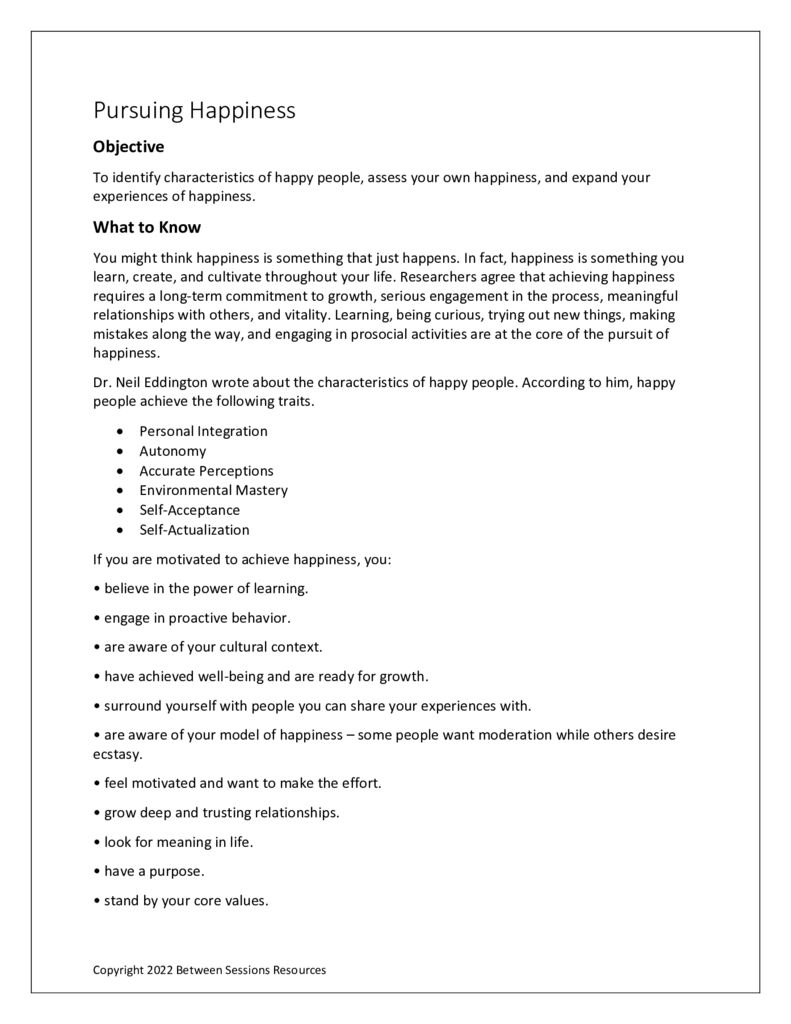Studies tell us that when professionals prescribe therapeutic homework, clients report significantly better outcomes. Our worksheets are derived from evidence-based therapies, and they are designed by experienced professionals. Use the navigation links on the left of this page to view tools in a specific category. Or use the search box at the top of this page to find the exact tool you are looking for.
To modify the tools, click the ‘Send to Client’ button by each tool to open the Psychology Forms Filler. You can then edit the tool as you see fit and either print it out or send it to a client to be filled out online. Click here for a tutorial on using the Psychology Forms Filler.
If you can’t find what you are looking for on this site, please let us know by
clicking here and our team of writers, graphic artists, and therapists will custom-design it for you.
This worksheet helps people understand the concept of “gaslighting,” a process where someone deliberately and systematically gives someone false information leading them to question themselves and what is true. It explains the seven stages of gaslighting, from lies and exaggeration to domination and control. The worksheet also gives people a chart to record incidents of gaslighting and to think about how the situations and the outcomes can change. (1022, marital and family therapy, relationships, interpersonal effectiveness)
This worksheet gives people a checklist to help them determine if they are emotionally needy. There are a dozen strategies to help deal with this problem followed by questions to help people understand how neediness affects their relationships. (1022, relationships, neediness)
This worksheet is designed for people whose abusive relationship has caused them to be socially isolated. The worksheet explains how this commonly happens and then suggests activities for people to connect with people who can be supportive and understanding. (1022, abuse, relationships, marriage counseling)
This worksheet is designed to help people understand how jealousy affects their relationships and what they can do to change self-destructive behaviors. (1022, jealousy, relationships, family therapy, marriage counseling)
This worksheet explains the concept of the “window of tolerance,” which is the optimal zone of arousal to function in a healthy manner. People who have experienced trauma may have a relatively narrow window of tolerance. On either side of the “window” are hyperarousal, a state of activation and energy, and hypoarousal, a slow down or even a shutdown state of response. This worksheet gives people suggestions on how to expand and stay within their window of tolerance. (1022, PTSD, trauma, emotional regulation)
This data collection form helps clients track activities that make them happy for two weeks. (1022, happiness, positive psychology, mood tracking)
This simple journal will make every session more meaningful! Within 24 hours after each session, the client is prompted to create notes on 8 areas about what happened in the session, including important things discussed in-session; feelings (expressed and unexpressed), unexpressed thoughts, and homework assignments. Then, before each new session, the client is prompted to respond to quotes about their thoughts, feelings, creativity, and much more. There are also two reoccurring rating scales that ask clients to rate their progress and assess their mood. (1022, journal, homework assignments)
This worksheet helps clients identify characteristics of happy people, assess their own happiness, and expand their experiences of happiness. (1022, happiness, positive psychology)
This worksheet allows clients to practice strategies for becoming more optimistic, including applying Martin Seligman’s “ABCDE” technique. (1022, learned optimism, positive psychology, PTSD, trauma)
This worksheet allows clients to complete an inventory identifying aspects of their post-traumatic growth (PTG). (1022, post-traumatic growth, PTG, PTSD, trauma)

